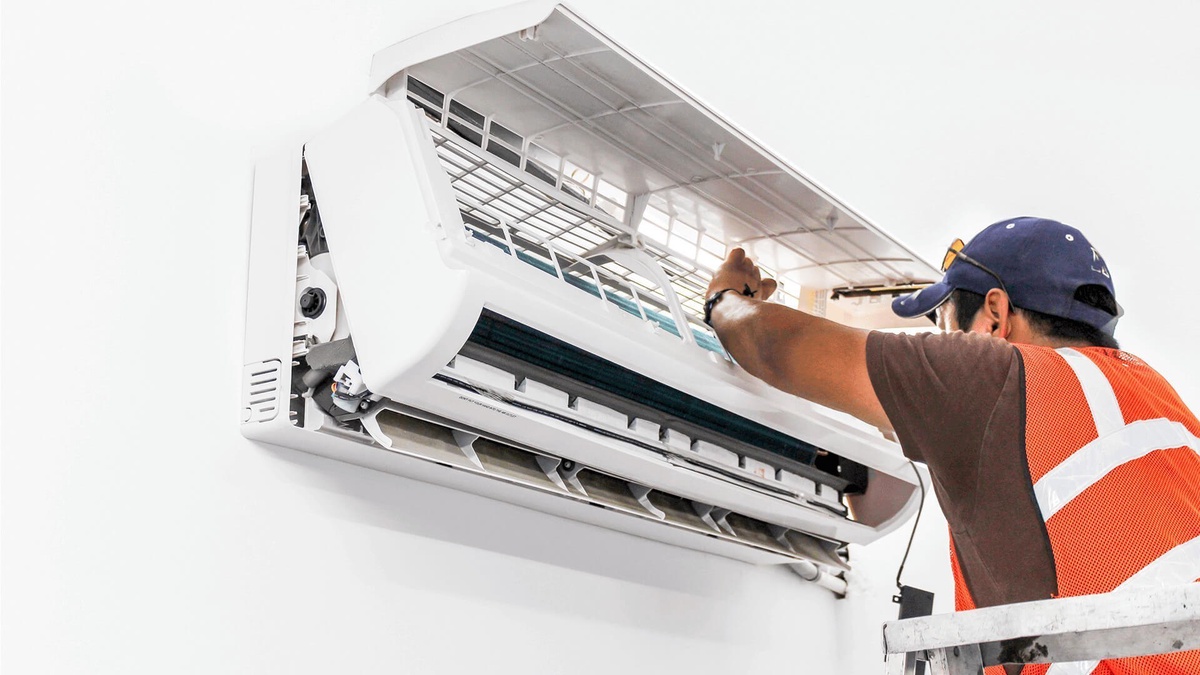When it comes to keeping your home comfortable and cool during scorching summers, nothing beats the efficiency of a well-chosen air conditioner. However, with a multitude of options available in the market, selecting the right AC for your home can be a daunting task.
Factors such as room size, energy efficiency, and your budget all play a significant role in making this important decision.
In this comprehensive guide, we'll help you navigate through the key considerations and provide you with valuable insights on how to choose the perfect AC for your home.
1. Determine Your Cooling Needs
The first step in selecting the right air conditioner for your home is to assess your cooling needs. This involves considering factors such as:
1. Room Size
Measure the square footage of the room(s) you plan to cool. This will help you determine the AC's cooling capacity, often measured in British Thermal Units (BTUs). A higher BTU rating is required for larger rooms.
2. Climate
Consider the climate in your region. Hot and humid climates may require more powerful cooling units, while milder climates can make do with smaller systems.
3. Number of Rooms
Decide whether you want to cool a single room or multiple rooms with a centralized system. Multi-zone systems are great for cooling several areas at once.
4. Usage Patterns
How often and for how long do you plan to use your AC? If it's for extended periods, energy efficiency becomes a crucial factor.
2. Energy Efficiency Matters
One of the most critical factors to consider when choosing an AC is energy efficiency. An energy-efficient air conditioner not only helps reduce your carbon footprint but also saves you money on your energy bills. Look for the following labels and ratings when shopping for an AC:
1. Energy Star Certification
Products with the Energy Star label meet strict energy efficiency guidelines set by the Environmental Protection Agency (EPA).
2. SEER Rating
The Seasonal Energy Efficiency Ratio (SEER) measures the cooling efficiency of an AC. A higher SEER rating means better efficiency.
3. Inverter Technology
Inverter ACs can adjust their compressor speed to maintain the desired temperature, which can save energy compared to non-inverter models.
3. Choose the Right AC Type
There are various types of air conditioners available, each with its advantages and disadvantages. The most common types include:
1. Window Air Conditioners
These are compact and cost-effective, suitable for cooling individual rooms or small spaces.
2. Split Air Conditioners
These consist of an indoor and outdoor unit and are ideal for cooling specific zones in your home.
3. Central Air Conditioners
Best for whole-house cooling, central AC systems are efficient but come with a higher installation cost.
4. Portable Air Conditioners
These are versatile and can be moved from room to room, making them suitable for renters or those on a tight budget.
4. Noise Levels
The noise produced by your AC can significantly affect your comfort at home. No one wants a loud, disruptive machine running in the background. When shopping for an AC, pay attention to the decibel (dB) rating. Quieter units typically have a rating of 50 dB or lower, which is important for bedrooms or quieter spaces.
5. Installation Considerations
Proper installation is crucial for the efficient operation of your AC. Consider the following installation factors:
1. Professional Installation
It's recommended to have your AC installed by a professional to ensure it's done correctly.
2. Location
Choose the right location for your AC unit to ensure optimal airflow and cooling.
3. Air Quality
Some AC units come with air purifying features. If you're concerned about indoor air quality, consider these options.
6. Maintenance and Repairs
Regular maintenance is essential to keep your AC running smoothly. Before purchasing, research the availability of local service and maintenance providers. Additionally, check the warranty offered by the manufacturer, as it can save you money on repairs.
7. Cost Considerations
Your budget plays a crucial role in your decision-making process. While it's tempting to opt for the cheapest option, keep in mind that a higher initial investment in an energy-efficient AC can save you money in the long run through reduced energy bills.
Consider not only the upfront cost of the unit but also the long-term operating costs, including energy consumption and potential repairs.
Conclusion
Selecting the perfect air conditioner for your home may seem like a challenging task, but with careful consideration of your cooling needs, energy efficiency, and other factors, you can make an informed choice.
Remember that the right AC can not only keep your home comfortable but also save you money and reduce your environmental impact. Take the time to research and explore your options, and you'll be enjoying a cool and comfortable home in no time.


No comments yet